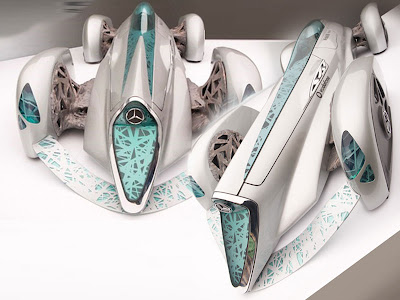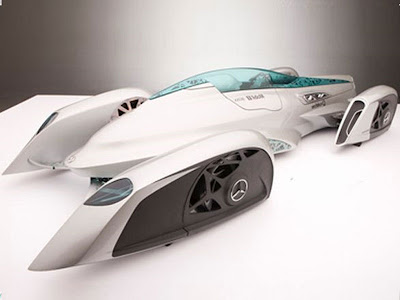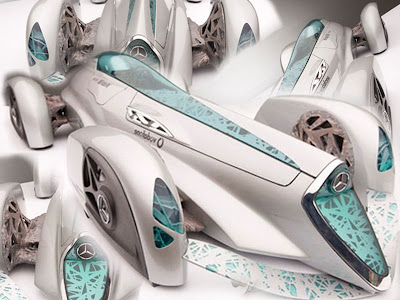Mercedes-Benz BlitzenBenz concept car Production year theoretical 2025. Brilliant and outstanding is what every car lover will exclaim when will see this BlitzenBenz concept car. The Mercedes-Benz BlitzenBenz concept was created by George Yoo, a designer at Mercedes-Benz Research and Development in Carlsbad, California. The BlitzenBenz was developed during his final year at the Art Center College of Design in Pasadena.
Created by George Yoo as a futuristic racing vehicle, BlitzenBenz concept is derived from two different sources. And let me tell you the roots of its design are in the past. The main inspiration behind the idea is from original Blitzen-Benz from 1909 that had a long tubular shape and rear cab positioning. On the other, Alex Erlandson work of creating sculptures from trees that were grown into certain shapes/patterns influenced Yoo considerably to contemplate what if automotive parts were to be grown and tamed to hold certain shapes.
Obviously the technology is not quite there yet to create such a vehicle, but the current research into nanotechnology is paving the way for intelligent and adaptable components which can be grown instead of manufactured. It's an incredibly interesting prospect which would completely alter the way cars are built, maintained, upgraded and recycled.
The exterior design is a base for the organic structure and the individual wheel pods are there to sense as to when the inside electric motors need to be cooled down. When the cooling will be required, these structures will open up in the same way as the plants do to receive the vital sunlight.
To run this Mercedes-Benz BlitzenBenz, there is an advanced next-generation Hygenius hybrid hydrogen engine and four in-wheel electric motors. The inspiration for the blue lightening system came from bioluminescent capabilities of deep sea creatures. Also, a hydrogen storage tank is just below the cockpit and the fuel level is shown in a small window.
Though, woefully, there is no technology to make this vehicle as such, but the progressing research into nanotechnology will surely open the way for components that can be grown than manufactured, changing the way cars will be built or maintained in future.





